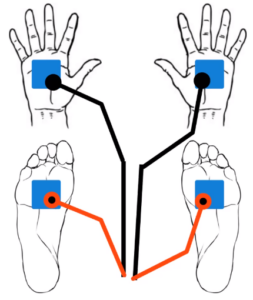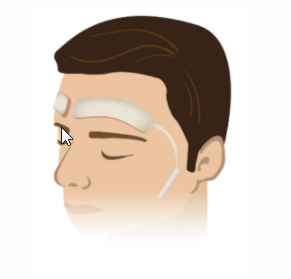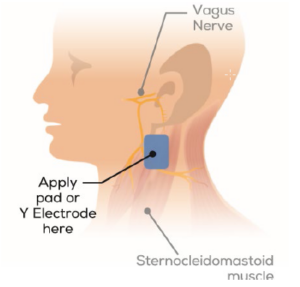
“It’s not stress that kills us, it’s our reaction to it.”
– Hans Selye
There’s much to be said about the insidious nature of stress and how it affects our overall health and wellbeing. But if you live with chronic pain, inflammation, or an autoimmune condition, getting a handle on your stress could be the difference between thriving and limping along in sorrow and pain.
Today we’re talking about to effectively deal with stress as soon as it strikes and offering up some long-term solutions so you can curate a life for yourself that is virtually stress-free and conducive to healing from chronic pain and illness.
Signs You May Be Stressed (and Not Even Know It!)
Not all stress is bad. Eustress (positive pressure) can be helpful and gratifying in a situation like falling in love, meeting a challenge, or winning a competition. The problems arise when chronic stress wears your body out, leaving it susceptible to adverse health risks like illness and disease.
The symptoms of stress can be sneaky and sometimes difficult to identify until it’s too late. More than 75% of adults in the US report experiencing better known physical or emotional symptoms of stress such as tiredness, headaches, and changed sleeping patterns. But many more of us are experiencing lesser-known symptoms of stress that seem to fly under the radar.
Lesser-known signs of stress:
- Weight gain around the abdomen
- Irregular or missed periods and intense menstrual cramps
- Sore jaw or teeth clenching
- Stomach aches, constipation, diarrhea, or vomiting
- Brain fog
- Tightness in the shoulders or neck
- Nightmares
- Back pain
If you face one or several of these lesser-known symptoms of stress, it’s time to step back and evaluate some of your triggers so you can begin to eliminate or mitigate them.
Quick Ways to Bring Down Stress
Now that you can recognize when you’re stressed, what can you do about it? Here are a few ways to reduce stress in the moment so that you don’t get stuck in a sympathetic state (fight or flight).

Grounding— Grounding allows you to tap into low natural frequencies that emanate from the Earth, called the Schumann Resonances. These frequencies range from 7.83Hz to 33.8Hz and provide a wide array of health benefits, stress reduction being one of them. Most importantly, Schumann Resonances work to balance the body’s electrical potential, keeping cells functioning optimally so the body can repair itself.
Self-Affirmations— How we talk to and about ourselves has a direct effect on our mental wellbeing. This concept is rooted in the idea of neuroplasticity, or our brains’ ability to adjust at any stage of life. Your brain is designed to create new neural connections and optimize neural pathways to adapt to new situations. By speaking to yourself in a kind and supportive way, you can support your brain in doing so.
- For 18 self-affirmations for people living in chronic pain, please read our blog, How We Talk About Chronic Conditions Affects Healing.
Physical Activity—Physical movement promotes the production of endorphins (the feel-good hormone) and triggers the release of proteins called neurotrophic factors. This process causes nerve cells to grow and make new connections, improving brain function, making you feel better.
- For some simple yet exercises that will help alleviate stress, please read our blogs, 4 At-Home Exercises for Chronic Pain Warriors and 8 Exercises for People in Pain.
Long-Term Approaches to Reducing Stress
Now it’s time to talk about ways to reduce overall stress that you can do every day but aren’t necessarily suitable for in-the-moment stress reduction. These strategies should be looked at as more of a routine than a “tactic” to getting a handle on health-harming and overwhelming thoughts.
Mindfulness— Yoga, Thai Chi, meditation, journaling, and walks in nature are all excellent ways to practice mindfulness, or the practice of shifting your focus to the present moment, while calmly accepting and acknowledging your feelings, bodily sensations, and thoughts.

Trigeminal Nerve Stimulation— Trigeminal Nerve Stimulation is a microcurrent therapy protocol that has been scientifically shown to improve the severity of depression and PTSD by tapping into the benefits of Gamma waves.
- To learn how to perform Trigeminal Nerve Stimulation, read our blog on the subject.

Vagus Nerve Stimulation— Vagus Nerve Stimulation is one of our most effective and impactful microcurrent protocols for relieving stress, anxiety, and depression.
- To learn about the parasympathetic and sympathetic nervous system and how Vegas Nerve Stimulation can be utilized to get you out of fight or flight mode, read our blog, Polyvagal Theory and Vagus Nerve Stimulation Putting Theory into Practice. In this blog, you will receive free step-by-step instructions for performing this highly effective stress-reduction protocol.
Big Moves You Can Make to Create a Stress-Free Lifestyle
Even while using short-term stress reduction techniques, you will need to address the source of stress to find the best relief. This includes making some lifestyle changes that create more space in your daily routine to feel peace, gratitude, and serenity.
Consider if any of these lifestyle changes will bring you relief from unnecessary stress:
Negotiate Away Stress— If there is a particular aspect of your life causing your extreme stress and distress, try and see what you can do to change it. It could look like asking your boss to work from home or switching around your schedule. If daily chores are overwhelming you, consider hiring a cleaning person or gardener to lift that burden. You’d be surprised at how making a few minor tweaks can open a whole new world of possibilities for you and your peace of mind.
Change Your Job— 83% of Americans experience workplace stress, and 76% of those workers experience a negative impact on their personal relationships due to said stress. If you feel your work environment is detrimental to your mental wellbeing, start planning for a change. We only get one life to live, and it shouldn’t be spent toiling away in an environment that keeps us from flourishing.
4 Strategies for successfully making a career change:
- Save up as much money as you can to assist you in bridging the gap between employment.
- Start sending off resumes as soon as you can acknowledge that your job is stressing you out. If you wait too long, you may be too emotionally exhausted to think about making a change.
- Speak with your family and/or partner about any potential gap in wages while making the change.
- If you quit your current job before starting a new one, use your free time wisely. Work on improving your life and mental health. Go for walks, connect with people who you love and admire. And remember not to get down on yourself for making such a big decision: your mental and physical health are more important than anything else.
Get Professional Support— Less than 25% of those with depression worldwide have access to mental health treatments. If you are fortunate enough to have access to mental health services through your insurance plan or employer, we implore you to utilize them (even if you don’t think you need them).
A lot of stressed-out people find cognitive-behavioral therapy (or CBT) helpful in breaking thought patterns that get them stuck in a loop of stress and misery. CBT is a psychotherapeutic treatment that teaches you how to detect and adjust damaging or disturbing thought patterns that negatively affect your behavior and emotions.
Getting professional assistance with mental health doesn’t have to be a huge undertaking. A Swedish study suggests that those who suffer from chronic stress can benefit significantly from a relatively short CBT program (even in patients with severe symptoms). As little as 10 minutes of CBT via the internet per patient each week was shown to be helpful.
Surround Yourself With a Supportive Community— Whether you belong to a faith group, book club, or a support group like our Pain Free For Life Support Group on Facebook, surrounding yourself with supportive and understanding people is a vital step in establishing a more peaceful lifestyle.
Now, you can incorporate some or all of these strategies into your routine to better balance your life.
After all, your healing is dependent on it.





